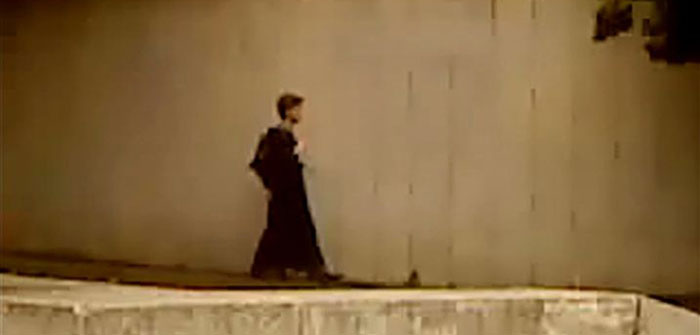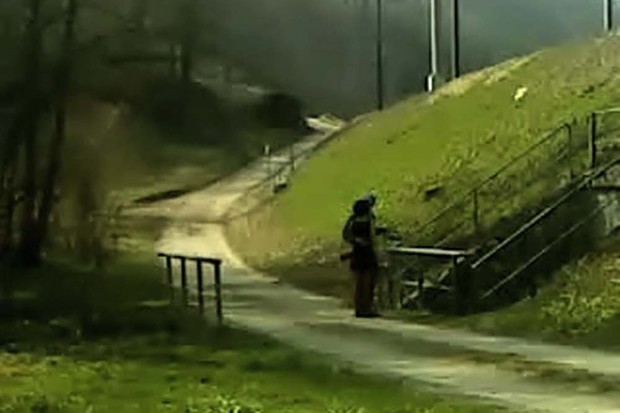Let the runtime never come again, either
This is the hardest time I’ve had slapping a rating on a movie in a long time, for the simple reason that I love its ambition and capital-V Vision, but can’t stand what it’s doing with those things.
Let the Summer Never Come Again is a punishingly long movie, nearly three and a half hours. The majority of films I’ve seen that run that long are genuine narrative epics. This film is very much not. Even if it had been 90 minutes, Let the Summer…’s story would feel slight and meditative; at 202 it feels like an outright endurance test. It is truly a punishing bit of slow cinema.

In addition, Alexandre Koberidze (director, writer, cinematographer, editor) uses an intentionally lo-fi style, pixelated with low framerate, for the entire duration of the film. It adds a hazy, filtered sensation to the entire film, as if we’re experiencing life through a cell phone screen (or possibly a hangover). It’s an exhausting style to sit through for such a long feature. It gradually achieves a meditative sort of effect, but it’s not exactly pleasant. It’s the equivalent of getting lightheaded while sitting out in the sun for a few hours.
And yet I still ultimately admire it more than I hate it. What I love, especially, is Koberidze’s eye for urban life in Tbilisi, Georgia, and the occasional patterns of beauty that emerge. He sparingly includes orchestral cues that add a sense of drama to the scattered images, sometimes to profound effect (a tour of sleeping dogs throughout the city impressionistically captures the diversity and contradictions of city life).
Koberidze is clearly trying to create a brand new narrative texture constructed from old pieces: The use of narration (in lieu of intertitles), off-screen conversations, and stagey medium shots recalls old-timey silent films, as if this is an ultra-iron man actuality, but with a layer of fresh modernity. The film’s droning quality and its repeated settings and motifs also viscerally capture the themes of depressing failure in a city. Modern urban life suffocates it characters, and Koberidze does the same to us.

It’s odd to praise a film that so intensely alienates its audience. Maybe I’m just in a sympathetic mood. Or maybe I just feel like it’s made me stronger as a film viewer. If you had asked me halfway through whether I liked the film, I would’ve given two thumbs down, and probably made a farting raspberry. (And that is never true of other endurance test movies I’ve liked a lot more, such as the even longer and hazier As I Was Moving Ahead…) And yet here I am, exhausted but pleased, like I just earned a merit badge. It didn’t lift me to nirvana the way that great slow cinema does, but Let the Summer Never Come Again is promising and daring enough to get my hopes up for Koberidze’s new film, What Do We See When We Look at the Sky?
Is It Good?
Nearly Good (4/8)
Dan is the founder and head critic of The Goods. Follow Dan on Letterboxd. Join the Discord for updates and discussion.

